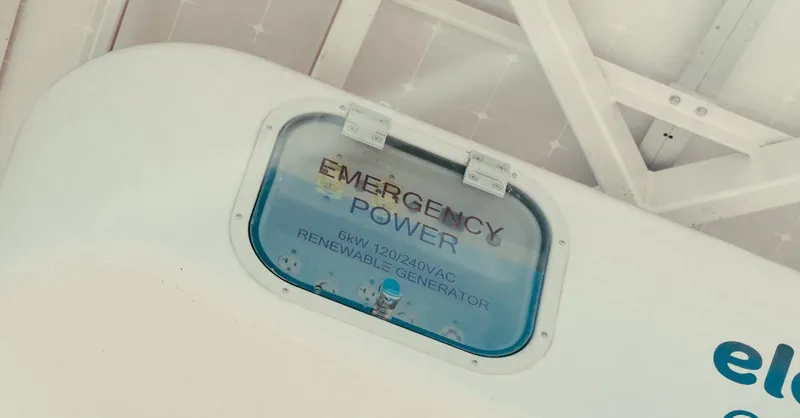Beginner’s Guide to Renewable Energy Careers
Category: Renewable Energy
Unlock Your Future with Renewable Energy Careers
If you're a curious beginner or an electrical engineer eager to transition into the sustainable energy sector, this guide is tailored for you. Understanding the rapidly evolving landscape of renewable energy careers can be overwhelming, especially when trying to gauge where your skills fit—whether in wind, solar, or emerging technologies. You probably arrived here searching for practical, clear insights on how to break into this field, what roles exist, and how innovation is shaping job opportunities.
This post cuts through jargon and industry noise to offer you a comprehensive roadmap, blending foundational knowledge with technical depth. We'll explore the key career paths, required skills, and education routes, dissecting the science and innovation behind the technologies powering these jobs. Unlike generic advice, this tailored guide helps both beginners and seasoned electrical engineers understand how to leverage their expertise to thrive in renewable energy.
Prepare to deep dive into the sectors driving the green revolution and discover practical steps to start or accelerate your career. By the end, you'll have a clear vision of your options and what it takes to contribute meaningfully to a sustainable future.
- Unlock Your Future with Renewable Energy Careers
- Overview of the Renewable Energy Sector: Market Growth, Emerging Trends, and Sustainability Driving Career Opportunities
- Core Renewable Energy Technologies Explained
- Popular Career Paths in Renewable Energy
- Required Education and Skills for Renewable Energy Careers
- Transitioning Into Renewable Energy from Electrical Engineering
- Industry Employers and Job Market Insights
- Internships, Apprenticeships, and Entry-Level Roles: Building Experience and Networks to Launch Your Renewable Energy Career
- Emerging Technologies and Future Career Opportunities
- Challenges and Rewards of Working in Renewable Energy
- Building a Career Roadmap: Resumes, Interviews, and Lifelong Learning
Overview of the Renewable Energy Sector: Market Growth, Emerging Trends, and Sustainability Driving Career Opportunities
The renewable energy sector is experiencing unprecedented growth worldwide, fueled by ambitious climate goals, technological breakthroughs, and increasing government and corporate commitments to sustainability. According to recent market analyses, the global renewable energy market is projected to grow at a compound annual growth rate (CAGR) of over 8% through the next decade, with solar and wind energy leading the expansion. This surge is creating a robust demand for skilled professionals across engineering, project management, research and development, and operations.
Several emerging trends are shaping this dynamic sector and opening up new career avenues:
- Digitalization and Smart Grids: Integration of IoT, AI, and data analytics is optimizing renewable energy systems for efficiency and reliability.
- Energy Storage Innovations: Advances in battery technologies and other storage solutions are critical to managing the intermittent nature of renewable sources.
- Hybrid Systems and Microgrids: Combining multiple renewable technologies with smart grid designs to enhance energy resilience and accessibility.
- Green Hydrogen Production: Developing hydrogen as a clean fuel offers promising opportunities in alternative energy markets.
- Sustainable Materials and Circular Economy: Focus on eco-friendly manufacturing and recycling reduces environmental impact throughout the lifecycle.
The importance of sustainability remains the central driver for the clean energy revolution. Governments and industries worldwide are prioritizing carbon neutrality, which translates into continuous investment in renewable infrastructure and research. For career seekers, this means an expanding landscape of jobs that not only promise growth and innovation but also align with impactful, mission-driven work. Whether you aim to become a wind turbine designer, solar power systems engineer, or a specialist in emerging technologies like offshore wind or grid-scale storage, understanding these market forces and trends is essential to positioning yourself for success in this transformative field.

Image courtesy of Kindel Media
Core Renewable Energy Technologies Explained
To build a strong foundation for a career in renewable energy, it's essential to understand the fundamental science and cutting-edge innovations driving the main technologies: wind, solar, and emerging solutions like battery storage and smart grids. These core technologies not only represent the largest share of clean energy generation but also provide diverse career opportunities across design, engineering, installation, and maintenance.
Wind Energy: Harnessing Atmospheric Power
Wind energy converts the kinetic energy of moving air into electrical power through turbines. Key innovations focus on improving turbine blade aerodynamics, developing taller and larger turbines to access stronger winds at higher altitudes, and integrating advanced control systems for optimized performance. Recent trends in offshore wind farms employ floating platform technology that expands deployment possibilities beyond shallow coastal waters.
Career paths in wind energy often require expertise in: - Aerodynamics and fluid mechanics - Structural and electrical engineering for turbine design - Control systems and real-time data analysis to maximize efficiency - Project management for large-scale wind farm development
Solar Energy: Capturing Light from the Sun
Solar photovoltaic (PV) technology directly converts sunlight into electricity using semiconductor materials, primarily silicon-based solar cells. Innovation is pushing the field towards higher efficiency cells, including perovskite solar cells, as well as bifacial panels that absorb light from both sides. Concentrated solar power (CSP) uses mirrors and lenses to focus sunlight, generating heat for power production and thermal storage, enabling energy availability even when the sun isn’t shining.
Vital skills for solar careers include: - Semiconductor physics and materials science - Electrical design of photovoltaic systems and inverters - System integration and installation techniques - Performance monitoring using IoT devices and predictive analytics
Emerging Technologies: Battery Storage and Smart Grids
Energy storage technologies, predominantly advanced lithium-ion batteries, are crucial for addressing the intermittent nature of wind and solar power. Innovation in solid-state batteries, flow batteries, and other chemistries aims to increase capacity, cycle life, and safety. The deployment of smart grids integrates digital communication, AI, and IoT devices to balance supply and demand dynamically, enhance grid resilience, and enable real-time energy management.
Important focal areas attracting specialized roles include: 1. Battery chemistry research and manufacturing 2. Power electronics and battery management systems (BMS) 3. Grid architecture, including microgrids and virtual power plants 4. Data analytics and cybersecurity for grid communication networks
Understanding these foundational technologies and their continuous innovation is critical for directing your skills and education toward a rewarding renewable energy career. From electrical engineers focusing on power electronics to data scientists optimizing grid operations, the sector demands multidisciplinary collaboration fueled by technological advancements that are shaping the future of global energy.

Image courtesy of Kindel Media
Popular Career Paths in Renewable Energy
The renewable energy sector offers a wealth of diverse and rewarding career paths that match various skill sets and interests, from engineering and technical roles to leadership and policy positions. Whether you're passionate about designing cutting-edge wind turbines or managing large-scale solar projects, understanding the key roles available is essential for planning your career trajectory.
Engineering Roles
Engineering remains at the core of renewable energy innovation:
- Electrical Engineers design and optimize power generation systems, inverters, and grid interconnections.
- Mechanical Engineers develop durable, efficient turbines, solar tracking systems, and energy storage hardware.
- Civil and Structural Engineers focus on site development, foundation design, and structural integrity for wind farms and solar arrays.
- Control Systems Engineers implement automation, sensor integration, and real-time monitoring to boost system reliability.
Specializing in these roles often requires strong foundations in physics, power electronics, and materials science, coupled with hands-on experience in simulation tools and software commonly used in renewable technology development.
Project Management and Development
A critical part of scaling renewable energy projects lies in skilled project management. These professionals oversee everything from initial feasibility assessments to resource allocation, regulatory compliance, and stakeholder engagement. Successful project managers often blend technical knowledge with business acumen, contract negotiation skills, and leadership capabilities to ensure timely, cost-effective project delivery.
Research and Innovation
For those driven by discovery and technological advancement, research careers in renewable energy explore new materials, improve energy conversion efficiencies, and advance storage solutions. Working in multidisciplinary teams at universities, private laboratories, or corporate R&D, researchers propel innovations like perovskite solar cells, next-generation batteries, and AI-driven grid optimization.
Installation and Maintenance
Hands-on roles in installation and maintenance are vital to keep renewable assets operational and efficient. Technicians and field engineers with expertise in electrical systems, safety standards, and troubleshooting perform essential tasks such as solar panel mounting, wind turbine servicing, and battery system inspections. These roles frequently provide entry points into the industry with options for certification and specialized training.
Policy, Consulting, and Sustainability Strategy
Beyond technology, numerous opportunities exist in policy development, consulting, and sustainability strategy. Professionals in these areas analyze market trends, navigate regulatory frameworks, advise on clean energy investments, and shape environmental impact reduction strategies. Combining technical insight with understanding of economic and political factors, these experts influence policy-making and corporate decisions critical to the renewable energy transition.
By exploring these popular career paths—engineering, project management, research, installation, maintenance, and consulting—you can identify where your talents and interests align with the fast-paced growth of renewable energy industries. Each path offers unique challenges and chances to contribute to global sustainability goals, making renewable energy a dynamic and inspiring career choice for beginners and experienced engineers alike.

Image courtesy of Los Muertos Crew
Required Education and Skills for Renewable Energy Careers
Breaking into the renewable energy sector or advancing within it requires a combination of formal education, certifications, hands-on training, and a diverse skill set tailored to the specific technology and role. Whether you're a beginner or an electrical engineer seeking to pivot into wind, solar, or emerging renewable technologies, understanding the educational pathways and key skills is essential for success.
Educational Pathways
- Degree Programs:
- Bachelor’s Degree in Electrical Engineering, Mechanical Engineering, Environmental Science, Renewable Energy Engineering, or related STEM fields is typically the minimum requirement for most technical roles.
- Master’s Degrees and Specialized Programs focusing on renewable energy systems, sustainable engineering, or energy policy provide advanced knowledge and open doors to research, project leadership, and innovation roles.
-
Many universities now offer dedicated renewable energy or sustainable engineering tracks, combining core sciences with emerging technologies such as battery storage and smart grids.
-
Certifications and Professional Training:
- Industry-recognized certifications such as NABCEP (North American Board of Certified Energy Practitioners) for solar professionals, or Certified Energy Manager (CEM) for broader energy management, boost credibility and practical competency.
- Specialized training in project management (PMP), power system simulation software (e.g., PSS®E, HOMER Energy), and control systems programming (e.g., SCADA, PLC) is highly valuable.
-
Safety certifications and compliance training (OSHA, electrical safety) are mandatory for installation and maintenance roles.
-
Hands-On Experience:
- Internships, co-op programs, and apprenticeships provide essential exposure to real-world renewable energy projects and equipment.
- Participation in university labs, research projects, or industry workshops enhances applied skills in turbine testing, solar array configuration, and energy storage system integration.
Essential Technical and Soft Skills
- Technical Skills:
- Proficiency in power electronics, circuit design, and renewable energy system modeling is critical for engineers and researchers.
- Familiarity with data analytics, AI, and IoT platforms supports roles in smart grid optimization and predictive maintenance.
-
Knowledge of materials science, battery chemistry, and semiconductor physics benefits innovation-focused positions.
-
Soft Skills:
- Strong problem-solving abilities to innovate and troubleshoot complex systems.
- Effective communication and teamwork for cross-disciplinary collaboration with engineers, policymakers, and business stakeholders.
- Organizational and project management skills to drive projects from concept to implementation under budget and on schedule.
- Adaptability and continuous learning mindset to keep pace with rapidly evolving renewable technologies and regulatory environments.
By strategically combining targeted education with practical experience and skill development, renewable energy professionals can position themselves at the forefront of technology and sustainability. This empowers a successful, impactful career contributing to the global clean energy transition.

Image courtesy of Gustavo Fring
Transitioning Into Renewable Energy from Electrical Engineering
For electrical engineers ready to pivot into the renewable energy sector, your existing expertise provides a strong foundation to capitalize on the rapid growth of clean energy technologies. The core principles of electrical circuitry, power systems, and control theory align closely with the demands of designing, optimizing, and maintaining renewable energy systems. By leveraging your technical background, you can seamlessly integrate into roles advancing wind turbines, solar arrays, energy storage solutions, and smart grid innovations.
How Electrical Engineers Apply Their Skills in Renewable Energy
Electrical engineers contribute to renewable energy through multiple specialized functions including:
- Power Electronics Design: Development and optimization of inverters, converters, and controllers that convert variable renewable energy into grid-compatible electricity.
- Grid Integration and Stability: Engineering solutions for connecting renewable resources to the electrical grid while maintaining power quality, frequency, and reliability.
- Control Systems Engineering: Designing automated systems to monitor and manage energy generation, storage, and distribution in real time.
- Energy Storage Management: Creating battery management systems (BMS) and power conditioning units essential for maximizing the efficiency and lifespan of storage technologies.
- Renewable Energy System Simulation: Utilizing modeling tools to predict performance, optimize configurations, and assess economic viability of projects.
Specializations in Renewable Energy for Electrical Engineers
To sharpen your focus and increase marketability, consider pursuing specializations such as:
- Solar Photovoltaic Engineering: Concentrating on PV system design, including module electrical characteristics, shading analysis, and inverter configuration.
- Wind Power Systems: Focusing on electrical generator design, turbine control algorithms, and grid interfacing for onshore and offshore wind farms.
- Smart Grid and Microgrid Technology: Developing intelligent energy networks employing IoT, machine learning, and decentralized resource management.
- Energy Storage Systems: Specializing in battery technologies, hybrid energy storage integration, and real-time state-of-charge monitoring.
- Power System Protection and Standards Compliance: Ensuring renewable installations adhere to reliability, safety, and grid code standards through advanced protection schemes.
By aligning your electrical engineering skills with one or more of these renewable energy specializations, you position yourself as an indispensable asset in the clean energy transition. Continuous upskilling in emerging technologies—such as advanced power electronics, AI-based grid monitoring, and sustainable energy forecasting—will further enhance your ability to innovate and lead in this field. This targeted expertise not only opens doors to cutting-edge projects but also fulfills the critical global demand for skilled engineers accelerating the shift toward sustainable energy futures.

Image courtesy of Amine Mayoufi
Industry Employers and Job Market Insights
The renewable energy sector is supported by a diverse ecosystem of leading companies, government agencies, and innovative startups, each offering unique career opportunities that cater to different skill levels and interests. For job seekers—from beginners to experienced electrical engineers—understanding where to find openings and which organizations are driving the industry forward is crucial to entering and thriving in the clean energy workforce.
Leading Companies Shaping Renewable Energy Careers
-
Multinational Energy Corporations:
Global giants like Siemens Gamesa, Vestas, GE Renewable Energy, First Solar, and Tesla Energy dominate the wind, solar, and battery storage markets. These companies offer roles in R&D, engineering design, project development, and system integration. Working with industry leaders can provide exposure to large-scale innovations and global projects. -
Government Agencies and Public Utilities:
Organizations such as the Department of Energy (DOE), National Renewable Energy Laboratory (NREL), and local utility companies actively recruit engineers and analysts to support renewable infrastructure planning, policy implementation, and grid modernization efforts. These roles often combine technical expertise with strategic oversight, ideal for candidates interested in public-sector contributions. -
Startups and Technology Innovators:
The renewable energy startup ecosystem is vibrant, with companies focused on advanced battery chemistries, AI-powered energy management platforms, offshore wind technologies, and green hydrogen production. Startups offer dynamic environments perfect for professionals eager to contribute to cutting-edge innovation and rapid product development cycles.
Where to Find Renewable Energy Jobs
-
Specialized Job Boards:
Platforms like RenewableEnergyJobs.com, Energy Jobline, and GreenTech Media Jobs specifically list openings in the clean energy sector, filtering opportunities by technology focus, experience level, and location. -
General Career Websites with Renewable Filters:
Large sites such as LinkedIn, Indeed, and Glassdoor provide robust search filters to target renewable energy jobs, including internships, entry-level roles, and senior engineering positions. -
Industry Associations and Professional Networks:
Joining organizations like the American Solar Energy Society (ASES), Wind Energy Association (WEA), and International Renewable Energy Agency (IRENA) can connect you with job fairs, mentorship programs, and networking events tailored to renewable careers. -
Company Career Pages:
Regularly visiting the careers sections of leading companies in renewable sectors ensures first access to new job postings and internship announcements.
The job market for renewable energy professions is highly competitive but simultaneously expanding, with employers particularly valuing candidates who combine technical credentials with adaptability and a passion for sustainability. By targeting the right employers and leveraging specialized employment platforms and networks, both beginners and seasoned electrical engineers can navigate their career path effectively in this dynamic and mission-driven industry.

Image courtesy of Gustavo Fring
Internships, Apprenticeships, and Entry-Level Roles: Building Experience and Networks to Launch Your Renewable Energy Career
Gaining practical experience is a crucial step for beginners eager to enter the renewable energy sector. Internships and apprenticeships provide immersive, hands-on learning opportunities that bridge academic knowledge with real-world applications in wind, solar, and emerging technologies like battery storage and smart grids. These positions allow you to develop key technical skills, familiarize yourself with industry tools and safety standards, and understand workplace dynamics crucial for long-term career success.
How Internships and Apprenticeships Accelerate Renewable Energy Careers
- Skill Development: Working alongside experienced professionals sharpens your abilities in system installation, testing, data analysis, and project support—skills highly sought after by employers.
- Exposure to Cutting-Edge Technologies: Interns and apprentices gain firsthand experience with advanced renewable energy systems, such as next-generation turbines, photovoltaic arrays, and energy management software.
- Understanding Industry Standards: On-the-job training entrenches you in industry best practices, regulatory compliance, and safety protocols, essential for technical and field roles.
- Networking and Mentorship: These programs enable you to build professional relationships and receive guidance from seasoned engineers and project managers, which can open doors to full-time positions.
Entry-Level Roles: Your Gateway to Long-Term Opportunities
Landing an entry-level job in the renewable energy sector—such as a renewable energy technician, junior engineer, or project coordinator—is often the next step after an internship or apprenticeship. These roles emphasize:
- Applying foundational knowledge in practical settings
- Participating in project execution and maintenance activities
- Collaborating within interdisciplinary teams to solve technical challenges
- Gaining insight into the business, operational, and policy aspects of renewable energy
Tips for Securing Internships and Entry-Level Positions
- Leverage University Career Services and participate in renewable energy competitions or clubs to stand out.
- Seek out companies with established internship programs and government or NGO projects focused on clean energy transitions.
- Customize your resume and cover letter to highlight relevant coursework, certifications, and passion for sustainability.
- Build a professional online presence on platforms like LinkedIn and engage with renewable energy communities to discover hidden job markets.
By strategically pursuing internships, apprenticeships, and entry-level roles, beginners and transitioning electrical engineers can fast-track their integration into the renewable energy workforce. These experiences not only enhance technical competencies but also foster the professional networks and industry insights necessary to thrive in this rapidly evolving field.

Image courtesy of Los Muertos Crew
Emerging Technologies and Future Career Opportunities
The renewable energy sector is rapidly evolving with innovations that are shaping the future of clean power generation and creating exciting new career opportunities. Beyond traditional wind and solar, cutting-edge technologies like offshore wind, perovskite solar cells, and green hydrogen production are emerging as game-changers, expanding the scope and diversity of renewable energy jobs.
Offshore Wind Technology: Expanding Horizons
Offshore wind farms leverage stronger and more consistent ocean winds, with innovations focused on floating turbine platforms and advanced installation techniques. These projects require expertise in:
- Marine engineering and environmental impact assessment
- Electrical systems for subsea cables and grid connection
- Large-scale project management and logistics
As offshore wind capacity is expected to skyrocket globally, demand is rising for engineers, technicians, and environmental specialists proficient in this niche but rapidly growing field.
Perovskite Solar Cells: Next-Generation Photovoltaics
Perovskite materials are revolutionizing solar technology with the potential for cheaper, lighter, and more efficient solar cells compared to traditional silicon. This innovation opens up careers in:
- Materials science and semiconductor research
- Thin-film manufacturing processes
- Module design and reliability testing
Professionals skilled in nanotechnology and experimental physics will find opportunities to influence the commercialization of these transformative solar technologies.
Green Hydrogen: The Future of Clean Fuels
Green hydrogen, produced via electrolysis powered by renewables, offers a promising energy carrier for sectors difficult to electrify, such as heavy industry and transportation. This emerging market creates jobs in:
- Electrolyzer design and optimization
- Hydrogen storage and distribution engineering
- Integration of hydrogen systems with existing energy infrastructures
As governments and industries invest heavily in hydrogen hubs and infrastructure, careers in research, engineering, and project development are proliferating rapidly.
How Emerging Technologies Create New Job Avenues
These leading-edge fields not only require traditional engineering and technical skills but also demand:
- A strong interdisciplinary understanding combining chemical, electrical, mechanical, and environmental engineering
- Proficiency in digital tools such as AI, IoT, and simulation software to innovate and optimize systems
- Adaptability to multidisciplinary collaboration across research, manufacturing, and policy domains
Embracing these technologies provides renewable energy professionals with exhilarating career paths that contribute directly to the global push for sustainable energy solutions. Whether developing offshore wind farms, pioneering perovskite solar manufacturing, or scaling green hydrogen production, the future of renewable energy careers is vibrant and full of potential for both beginners and electrical engineers looking to specialize in these transformative areas.

Image courtesy of Patrick
Challenges and Rewards of Working in Renewable Energy
Embarking on a career in renewable energy offers a unique blend of professional challenges and deeply rewarding experiences that reflect the sector's dynamic nature and critical impact on global sustainability. As a renewable energy professional—whether in wind, solar, energy storage, or emerging technologies—you'll encounter demanding technical problems, evolving regulatory landscapes, and the need for continuous innovation. However, these challenges come with significant career growth potential and the satisfaction of contributing to a cleaner, greener planet.
Key Challenges in Renewable Energy Careers
-
Technical Complexity and Rapid Innovation:
Renewable energy technologies frequently evolve, requiring professionals to continuously update their technical expertise. Mastering interdisciplinary fields—from advanced power electronics and materials science to AI-driven grid management—can be demanding but essential to remain competitive. -
Project and Environmental Constraints:
Deploying renewable projects often involves navigating complex site conditions, variable weather, and strict environmental regulations. Engineers and project managers must balance technical feasibility, cost-effectiveness, and ecological stewardship, which sharpens problem-solving and adaptive skills. -
Intermittency and Grid Integration Issues:
Managing the fluctuating nature of solar and wind resources presents ongoing operational and engineering challenges. Developing and maintaining reliable grid integration, energy storage, and smart control systems requires creativity and resilience. -
Cross-Disciplinary Coordination:
Renewable energy projects demand collaboration across diverse expertise—engineering, policy, finance, and community engagement. Effective communication and teamwork are crucial to align technical goals with regulatory frameworks and stakeholder expectations.
The Rewards: Why Choose a Renewable Energy Career?
- Meaningful Impact: Every role contributes directly to reducing greenhouse gas emissions and advancing global climate goals, providing a powerful sense of purpose and fulfillment.
- Rapid Career Growth and Diversity: The industry’s swift expansion opens diverse pathways to leadership, specialization, and innovation, ensuring long-term career stability and progression.
- Innovation-Driven Environment: Working at the forefront of emerging technologies enables you to pioneer solutions that redefine how energy is generated, stored, and managed worldwide.
- Global Opportunities: Renewable energy’s global demand creates abundant job prospects across countries and cultures, enriching your professional experience and network.
By embracing the complexities of renewable energy work, professionals gain valuable skills and insights that transcend traditional energy sectors, positioning themselves as key drivers of a sustainable future. This blend of challenge and reward makes renewable energy careers uniquely compelling for both beginners and experienced electrical engineers committed to innovation and environmental stewardship.

Image courtesy of Gustavo Fring
Building a Career Roadmap: Resumes, Interviews, and Lifelong Learning
Crafting a strategic career roadmap is essential for success in the renewable energy sector, whether you're a beginner charting your first steps or an electrical engineer transitioning into this fast-evolving field. Given the dynamic nature of wind, solar, and emerging technologies, your ability to present relevant skills, demonstrate adaptability, and commit to continuous learning will set you apart in a competitive job market.
Crafting a Powerful Resume for Renewable Energy Roles
Your resume should clearly highlight your technical competencies, practical experience, and enthusiasm for sustainability. Tailor your document to the renewable energy industry by:
- Emphasizing relevant skills: Include expertise in power electronics, system design, data analytics, or project management, depending on the role.
- Showcasing hands-on experience: Detail internships, apprenticeships, or projects involving renewable systems, even academic research or personal initiatives.
- Incorporating certifications and training: List credentials such as NABCEP certification, PMP, or SCADA proficiency to demonstrate industry-standard qualifications.
- Quantifying accomplishments: Use metrics where possible, e.g., “Optimized solar array layout to improve energy yield by 15%,” to illustrate impact.
Preparing Effectively for Renewable Energy Interviews
Interviewers seek candidates who combine technical knowledge with problem-solving ability and cultural fit. Prepare by:
- Reviewing fundamental concepts of renewable technologies relevant to the position, including current industry trends and innovations.
- Practicing responses to scenario-based questions that assess your approach to challenges like grid integration or system optimization.
- Demonstrating your passion for renewable energy through examples of continuous learning, collaboration, or sustainability initiatives.
- Preparing insightful questions about the company’s projects, technologies, and growth strategies, showing your genuine interest and proactive mindset.
Continuing Education and Lifelong Learning
The renewable energy sector's rapid innovation demands a commitment to lifelong learning. To stay competitive and advance your career:
- Enroll in online courses and certifications targeting emerging technologies such as green hydrogen systems, offshore wind design, or AI-powered grid management.
- Attend industry conferences, webinars, and workshops to network and update your knowledge on policy changes and technological breakthroughs.
- Subscribe to leading journals and newsletters like Renewable Energy World and IEEE Transactions on Sustainable Energy for cutting-edge research and trends.
- Engage with professional organizations and forums to exchange ideas, find mentors, and stay connected to the renewable energy community.
By building your career roadmap around strong resume-building practices, thoughtful interview preparation, and an ongoing commitment to skills enhancement, you position yourself to thrive in the dynamic renewable energy landscape. This proactive approach ensures you remain adaptable and authoritative across current and future energy technologies, unlocking rewarding opportunities that align with your passion for a sustainable world.

Image courtesy of cottonbro studio
